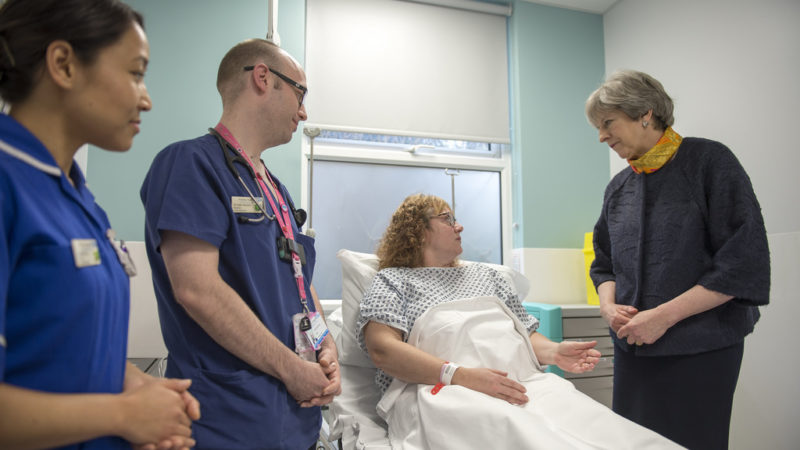With little investment in the health services and social inequality on the rise, the Tories that have questions to answer.

In the midst of the recent cold snap and the government’s continuing Brexit wrangles with the European Community, a dramatic slump in public satisfaction with the National Health Service went largely unreported.
The latest satisfaction figures, published by the Nuffield Trust and the King’s Fund from results of the British Social Attitudes survey, revealed a 7% drop in satisfaction over the last year, and a 13% fall since 2010. Just 57% of the public are now satisfied with the NHS, while dissatisfaction has climbed to 30% from 18% eight years ago.
Net public satisfaction with the NHS now stands at just 27% compared with 52% in the last year of Labour government.
The chart shows how satisfaction grew year-on-year during the decade up to 2010, as Labour sought to ratchet-up health spending to the EU average, making the case that increased funding does make a difference.
Now, NHS funding is falling as a percentage of GDP, and is set to fall further by 2020. This spending shortfall, coupled to Brexit uncertainties, has resulted in a staff vacancies crisis in the NHS, with resultant increases in the costs of hiring agency staff.
All of this is happening as life expectancy stagnates in the UK for the first time since figures were available. It is even falling in some parts of the country. Many commentators place the blame for this on the government’s austerity policies post-2010.
Austerity has worsened the ‘social gradient’ in health, which has long been confirmed by epidemiologists.
Whereby people with higher socio-economic status, incomes and wealth live longer and have better health and wellbeing than those lower down the scale.
There are also significant health inequalities between neighbourhoods, with people in the leafy suburbs away from high population densities and air pollution, live longer than those in more congested inner city areas.
New research by the Human City Institute shows that poor and overcrowded housing in the most deprived neighbourhoods cuts life short by around a decade.
What’s more, such living conditions cost the NHS £1.4bn per annum, or £7bn over a full Parliament. Cuts to public health funding are costing the NHS dear too.
A widening of income and wealth inequality in the last decade, growth in the extent of poverty and destitution, exemplified by an almost trebling of the number of rough sleepers since 2010 and the continuing rise in food bank usage, coupled to cuts in housing, community regeneration and to local council services, are all taking their toll on the health of the nation’s most disadvantaged communities.
Hit by a double-whammy of falling living standards and overstretched hospital and other medical services, it is no wonder that the British people start finding the NHS lacking. But it is the government, not the National Health Service, that should be made responsible for the crisis.
Kevin Gulliver is Director of Birmingham-based research charity the Human City Institute, is former Chair of the Centre for Community Research, and part of the SHOUT save social housing campaign. He writes in a personal capacity.
Left Foot Forward doesn't have the backing of big business or billionaires. We rely on the kind and generous support of ordinary people like you.
You can support hard-hitting journalism that holds the right to account, provides a forum for debate among progressives, and covers the stories the rest of the media ignore. Donate today.



